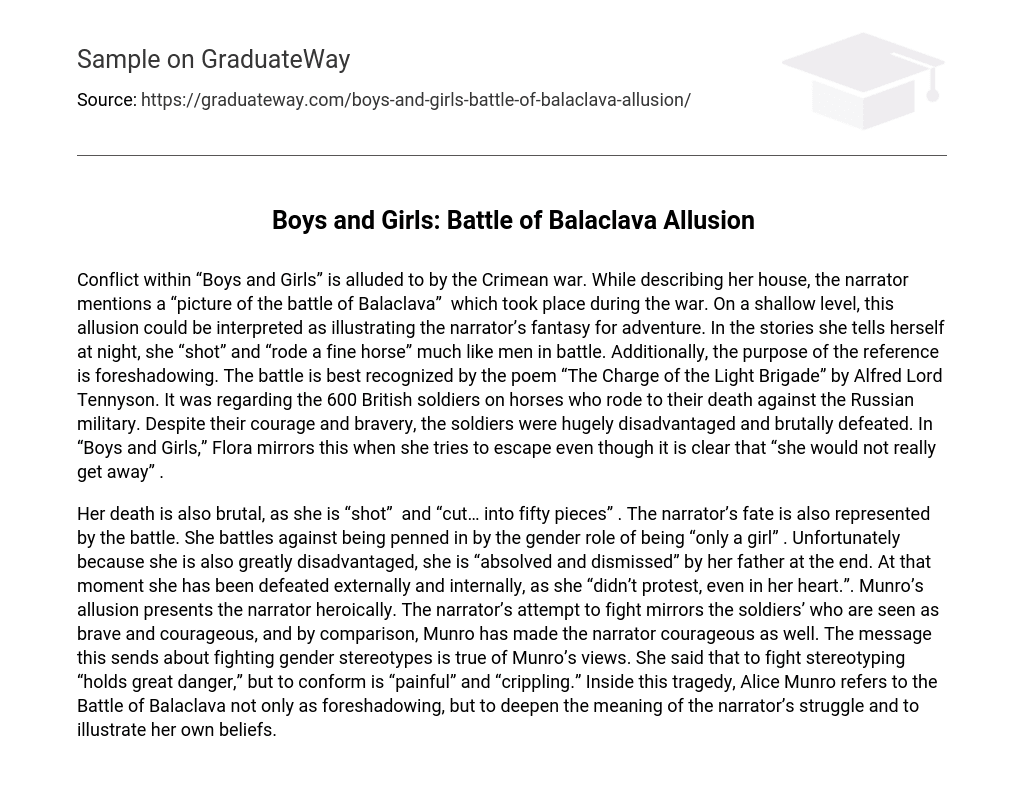Conflict within “Boys and Girls” is alluded to by the Crimean war. While describing her house, the narrator mentions a “picture of the battle of Balaclava” which took place during the war. On a shallow level, this allusion could be interpreted as illustrating the narrator’s fantasy for adventure. In the stories she tells herself at night, she “shot” and “rode a fine horse” much like men in battle. Additionally, the purpose of the reference is foreshadowing. The battle is best recognized by the poem “The Charge of the Light Brigade” by Alfred Lord Tennyson. It was regarding the 600 British soldiers on horses who rode to their death against the Russian military. Despite their courage and bravery, the soldiers were hugely disadvantaged and brutally defeated. In “Boys and Girls,” Flora mirrors this when she tries to escape even though it is clear that “she would not really get away” .
Her death is also brutal, as she is “shot” and “cut… into fifty pieces” . The narrator’s fate is also represented by the battle. She battles against being penned in by the gender role of being “only a girl” . Unfortunately because she is also greatly disadvantaged, she is “absolved and dismissed” by her father at the end. At that moment she has been defeated externally and internally, as she “didn’t protest, even in her heart.”. Munro’s allusion presents the narrator heroically. The narrator’s attempt to fight mirrors the soldiers’ who are seen as brave and courageous, and by comparison, Munro has made the narrator courageous as well. The message this sends about fighting gender stereotypes is true of Munro’s views. She said that to fight stereotyping “holds great danger,” but to conform is “painful” and “crippling.” Inside this tragedy, Alice Munro refers to the Battle of Balaclava not only as foreshadowing, but to deepen the meaning of the narrator’s struggle and to illustrate her own beliefs.





